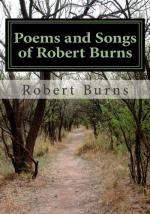|
This section contains 6,127 words (approx. 21 pages at 300 words per page) |

|
SOURCE: "Poet of the Parish," in Burns: A Study of the Poems and Songs, Oliver and Boyd, 1960, pp. 111-46.
In the following essay, Crawford analyzes Burns's attempt at treating local themes in a universal manner in his poetry.
Many poems of Burns's first period embody the experience of a rural community in a way that has rarely been equalled in English. Ever since neolithic times, the settled village has been, next to the family, the most fundamental unit of society; it has survived war and pestilence, flood and famine, the fall of empires and the decline of civilisations. An art which successfully reflects the way of life of such a community will tend to have a universality broader and more general, though not necessarily deeper, than that of any other sort; it will tend to mirror, not what the best or the cleverest men have seen and felt...
|
This section contains 6,127 words (approx. 21 pages at 300 words per page) |

|


